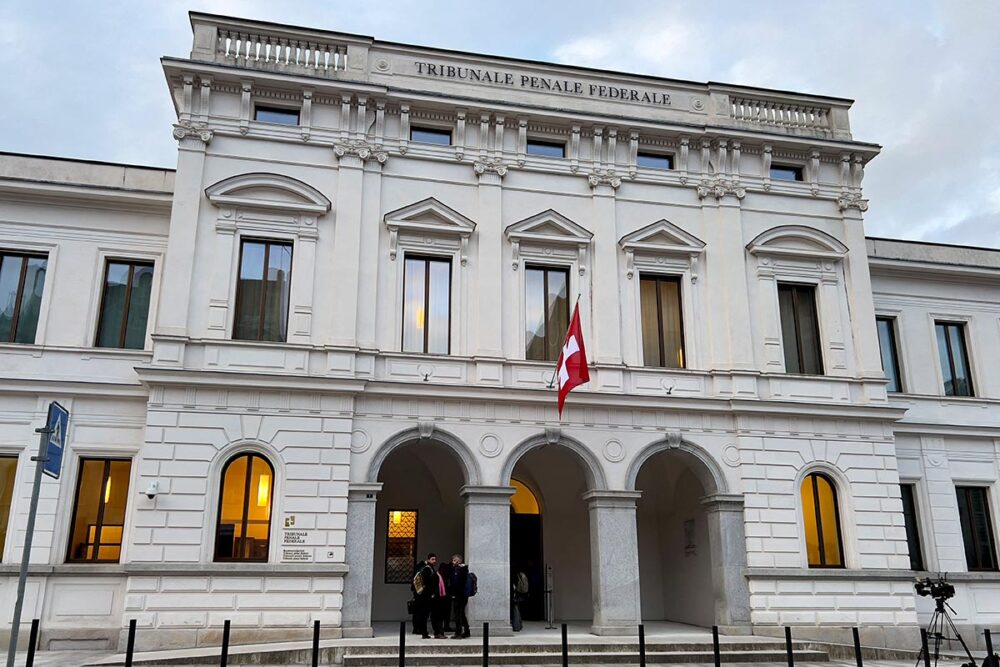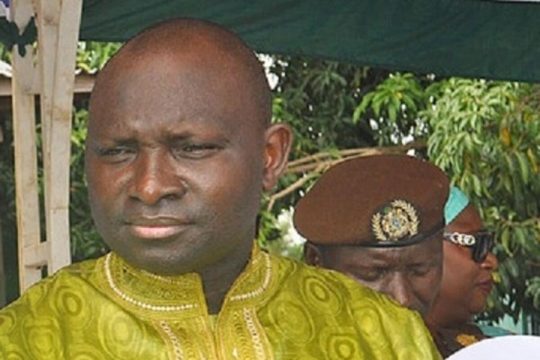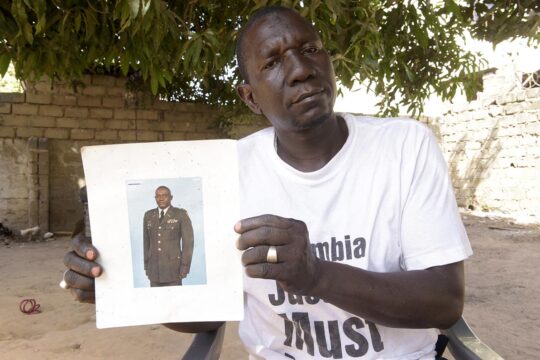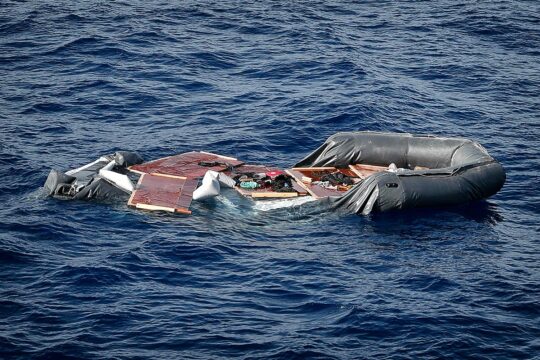It is presented by victims’ associations as a historic trial for both the Gambia and Switzerland. After a long seven years in pre-trial detention, Ousman Sonko will face charges in court for responsibility in extrajudicial killings, disappearances, torture and rape under former Gambian dictator Yahya Jammeh, and failure to prevent them.
Sonko was finally indicted in April this year. This is only the second ever international crimes trial in a Swiss civil court after that of Liberian Alieu Kosiah. Like the latter, Sonko’s trial will be held in the Federal Criminal Court of Bellinzona, southeast Switzerland.
“Unfortunately, we are unable to provide the media with a detailed schedule of the proceedings,” the court secretariat told Justice Info. However, it seems that only 11 victims are due to testify, according to Sonko’s lawyer Philippe Currat. The accused will plead not-guilty, and also hopes to get some of the charges dropped, Currat says.
Highest-ranking state official tried in Europe
“The trial of one of the senior officials of the Jammeh regime could send a strong signal and give new impetus to the search for truth and justice, for which many Gambians have worked,” according to Swiss NGO TRIAL International, which brought the original legal complaint that started this case. Sonko, it says, will be the highest-ranking state official ever to be tried in Europe for international crimes under the principle of universal jurisdiction.
Germany and the US have also launched criminal proceedings under universal jurisdiction linked to Yahya Jammeh-era atrocities in the Gambia. Gambia’s national truth commission, which published its report in December 2021, recommended prosecutions, among other things. But the Gambia has only conducted two related trials so far, with convictions for murder (not international crimes). Former dictator Jammeh himself remains in exile in Equatorial Guinea, where he fled after he was ousted from power in 2017.
Accessibility for Gambians?
In the run-up to the trial, the Swiss public prosecutor wrote to the court on November 17 requesting that it put in place measures to make the hearings accessible to a wider public, particularly in the Gambia. It does not specify the measures. This request is supported by defence lawyer Currat, who stressed that while interest amongst the Swiss public is likely to be only “moderate”, the trial is of great interest to people in Gambia and it needs to be transparent so that they can understand the proceedings and outcome. Currat said he would like to see the public hearings translated into English and made available online.
The Office of the Attorney General’s letter to the court notes the “special character of international criminal proceedings and the associated obligation to the international community”. It also cites a precedent from universal jurisdiction trials in Germany. “In particular, we would like to draw attention to the important findings from last year's trials in Germany (the so-called Koblenz / Al-Khatib trials),” the prosecutor writes. “In connection with the participation of the Syrian population in the trial, the Federal Constitutional Court instructed the Koblenz Higher Regional Court in response to a constitutional complaint that it must allow accredited media representatives to follow the proceedings in Arabic.”
Asked about this, the Swiss court’s secretariat told Justice Info that “Switzerland does not have a legal basis allowing for ‘court TV’”. It said the hearings would be in German, and that only questions to the defendant and victims would be translated – into English. But it also said “the course of the main hearing is going to be published on short notice in English” on the court website (www.bstger.ch > General announcements), and confirmed that Gambian journalists could be accredited. There is information on the website about accreditation.
Validity of charges contested
Sonko is scheduled to speak on the morning of the first day, according to his lawyer, and the first victim (Binta Jamba, who says she was raped by Sonko) to testify on the second day. But the opening of the trial could be slower. After the initial formalities, the court is expected to ask if the parties wish to raise “prejudicial issues”. Currat says he plans to raise several.
Among these issues are the validity of the second indictment [it was amended in June at the request of the judges who wanted some of the alleged facts fleshed out]; the testimonies of Gambian witnesses to the investigation in Gambia, for which he says the defence has not obtained any documents; and the applicability of Swiss universal jurisdiction before 2011.
Switzerland only incorporated the possibility to judge international crimes into its Criminal Code in 2011, whereas some of the alleged crimes in this case date further back. If the court were to decide that the law does not apply before 2011, some of the charges would fall.
The charges against Sonko are extremely grave. A particular feature of this case, says the prosecutor, is that “the defendant's criminal liability (…) does not result solely from direct involvement in the alleged offences, but also from the responsibilities that he had in his capacity as the interior minister, as he was directly in charge of the police and of the prison service”. The accused allegedly committed the crimes both alone and with a collective of perpetrators consisting of Jammeh and leading members of the security forces and prison services of Gambia. The prosecutor says it was part of a generalized and systematic attack against the civilian population of Gambia, i.e. a crime against humanity.
Currat plans to contest Sonko’s command responsibility in some of the events, and present an alibi for some, as well as arguing that Swiss law does not apply before 2011.
Seven years in remand
Sonko, who turns 55 on January 9 (the second day of his trial), will also have been in Swiss remand custody for seven years on January 25. Currat has protested the “disproportional” length of this pre-trial custody and also his client’s conditions of detention, which the lawyer says have affected both Sonko’s physical and mental health. Sonko is diabetic. He thinks Swiss rules on remand – which tends to be longer than in other European countries – should be reformed.
Swiss justice has been notoriously slow so far on international justice cases, with Liberian Kosiah having spent six years in pre-trial detention before he finally went to trial. However, current Swiss Attorney General Stefan Blättler, who assumed the post at the beginning of 2022, has vowed to make international crimes a priority.
Sonko was first held in a prison in the Swiss town of Bienne, then in Burgdorf, then in Thun. His lawyer says that Thun is not problematic, but in Bienne he was held in solitary confinement without much light, and in Burgdorf there were serious problems, particularly with access to food, owing to apparent lack of prison staff. Currat says one of Sonko’s eyes has been affected and he also went through serious depression.
But, asked if Sonko is fit to stand trial, his lawyer says yes.








